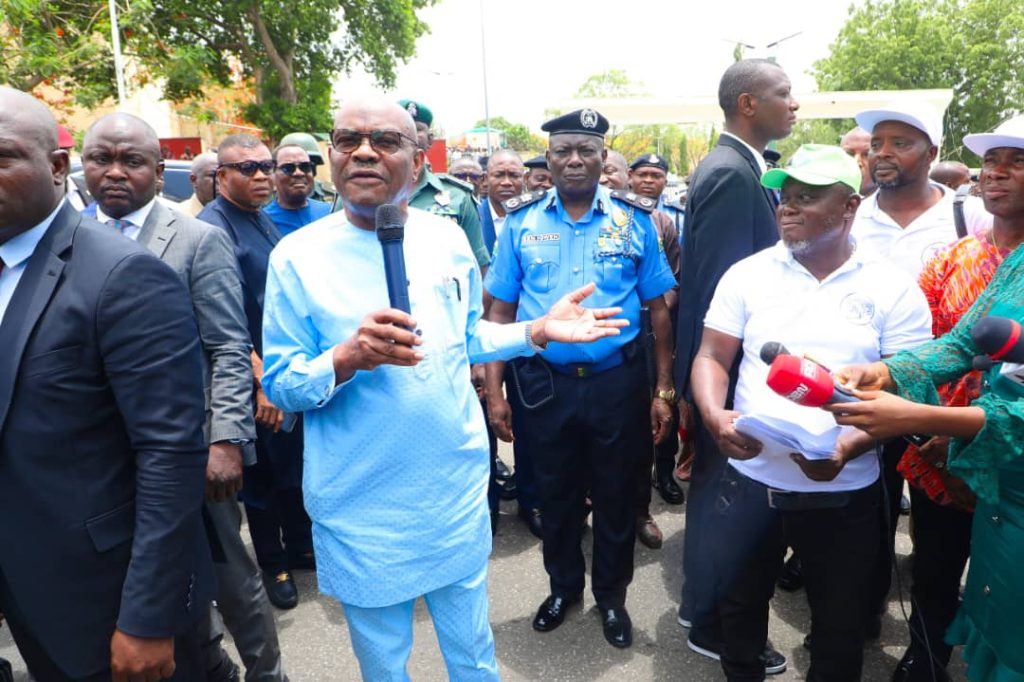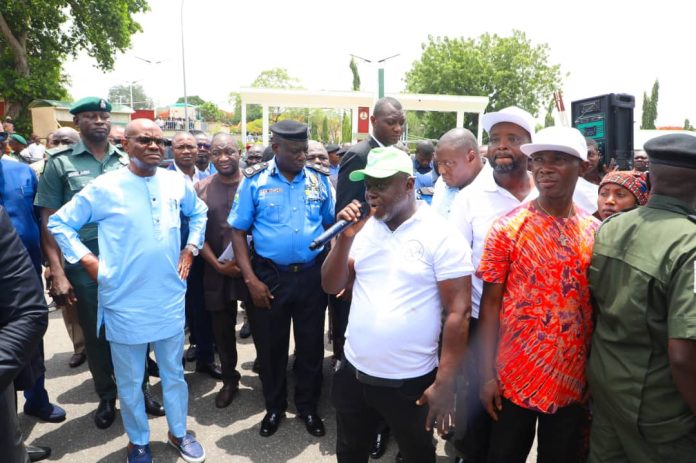Barr. Nyesom Wike, the Minister of the Federal Capital Territory (FCT), has issued a stern warning to traders against engaging in arbitrary protests without following due process, emphasizing that such actions will be viewed as attempts at intimidation.
The warning came in response to a recent protest by traders from the Apo Mechanic village, who gathered at the entrance of the FCTA Secretariat, demanding that the Minister sign a lease agreement enabling them to move to their permanent site at Wassa District.
While acknowledging the Minister’s developmental strides, the traders appealed for the signing of the lease agreement, which was initiated in 2015.

However, Wike criticized the traders for failing to engage his office in discussions regarding the delay in implementing the lease agreement or informing him of the protest.
The Minister expressed displeasure at the protest tactics, questioning the basis for the demonstration and accusing the traders of intimidation tactics.
He emphasized the importance of dialogue in resolving grievances, urging the traders to follow due process and engage in constructive communication rather than resorting to road blockages and traffic disruptions.

Wike stressed his readiness to address the traders’ concerns if properly presented, highlighting the necessity of formal communication channels to facilitate meaningful engagement and resolution of issues.
He urged the traders to adhere to due process, emphasizing his commitment to addressing their grievances through constructive dialogue and cooperation.
The traders’ association, led by Chimezie Ife, had expressed frustration over the prolonged delay in allocating a permanent business environment, dating back to 2006 when the old Apo mechanic village was demolished.

Despite expenditures exceeding N100 million over the years, the traders are yet to be allocated their land, leading to demonstrations against the administration.
The Minister’s warning serves as a reminder to traders and other stakeholders to engage with his office through formal channels, ensuring that grievances are addressed through constructive dialogue and cooperation.”

